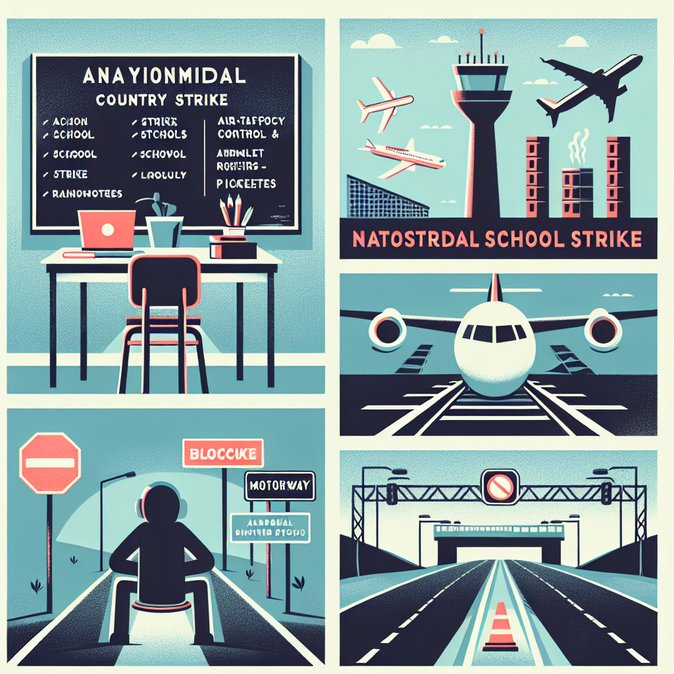
Italy entered November under a cloud of industrial unrest, with the first nationwide strike hitting schools and universities on 4 November, and further walkouts announced across rail, bus, metro and air-traffic-control sectors later in the month. Newsroom Italia published a consolidated calendar hours before the initial action began.
While the education stoppage has limited mobility impact, the schedule flags 14 November (ENAV air-traffic controllers) and 28 November (multi-sector general strike including rail and motorway staff) as high-risk days for travellers and assignees. Airlines have already activated waiver policies allowing free rebooking for flights on those dates.
![Italy faces November wave of strikes: 4 Nov school walkout kicks off month of transport and airport stoppages]()
Multinationals with time-critical meetings or relocation moves should consider bringing arrivals forward or shifting to early December. HR teams are advised to re-validate train tickets and arrange contingency ground transport, especially for moves involving household-goods trucks that could be caught in motorway pickets.
Past data suggest that even a four-hour ATC strike can lead to 30 % flight cancellations at Rome Fiumicino and Milan Linate. Italian law mandates minimum-service bands, but experience shows regional variations; mobility managers should monitor carrier alerts rather than relying solely on published strike windows.
The root causes—wage-catch-up demands amid 5 % inflation and contract renewals that lapsed during the pandemic—mean further actions cannot be ruled out in December, complicating holiday-season travel.
While the education stoppage has limited mobility impact, the schedule flags 14 November (ENAV air-traffic controllers) and 28 November (multi-sector general strike including rail and motorway staff) as high-risk days for travellers and assignees. Airlines have already activated waiver policies allowing free rebooking for flights on those dates.

Multinationals with time-critical meetings or relocation moves should consider bringing arrivals forward or shifting to early December. HR teams are advised to re-validate train tickets and arrange contingency ground transport, especially for moves involving household-goods trucks that could be caught in motorway pickets.
Past data suggest that even a four-hour ATC strike can lead to 30 % flight cancellations at Rome Fiumicino and Milan Linate. Italian law mandates minimum-service bands, but experience shows regional variations; mobility managers should monitor carrier alerts rather than relying solely on published strike windows.
The root causes—wage-catch-up demands amid 5 % inflation and contract renewals that lapsed during the pandemic—mean further actions cannot be ruled out in December, complicating holiday-season travel.












